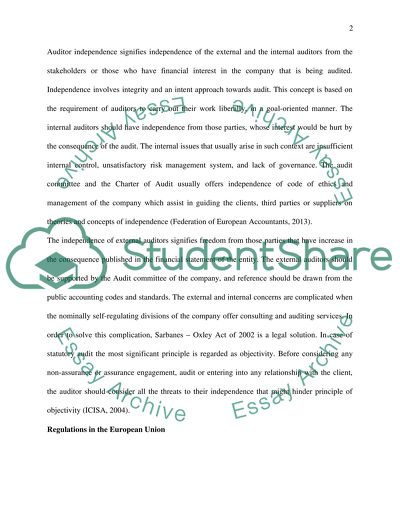Cite this document
(“Envalue the Auditor Independence Provisions Essay”, n.d.)
Envalue the Auditor Independence Provisions Essay. Retrieved from https://studentshare.org/finance-accounting/1480530-envalue-the-auditor-independence-provisions
Envalue the Auditor Independence Provisions Essay. Retrieved from https://studentshare.org/finance-accounting/1480530-envalue-the-auditor-independence-provisions
(Envalue the Auditor Independence Provisions Essay)
Envalue the Auditor Independence Provisions Essay. https://studentshare.org/finance-accounting/1480530-envalue-the-auditor-independence-provisions.
Envalue the Auditor Independence Provisions Essay. https://studentshare.org/finance-accounting/1480530-envalue-the-auditor-independence-provisions.
“Envalue the Auditor Independence Provisions Essay”, n.d. https://studentshare.org/finance-accounting/1480530-envalue-the-auditor-independence-provisions.


